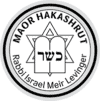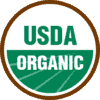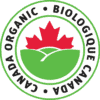EU
In order for farmers to derive benefits from organic farming methods, consumers need to trust that the rules on organic production are being followed. Therefore, the EU maintains the following strict system of control and enforcement to guarantee that organics rules and regulations are being followed properly. Our company is certified by CERES (Certification of Environmental Standards GmbH).
USDA / NOP
Operating as a public-private partnership, NOP accredits private companies and helps train their inspectors to certify that farms and businesses meet the national organic standards. USDA and accredited certifiers also work together to enforce the standards, ensuring a level playing field for producers and protecting consumer confidence in the integrity of the USDA Organic Seal.
COR
The COR is a non-traditional regime for the CFIA and the SFCR (Safe Food for Canadians Regulations) provide a federal program for the regulation of Canadian organic products. The COR is designed to build on the existing system of domestic accreditation and certification. Almost all of our products are either COR certified directly or per the NOP/COR or EU/COR equivalency agreements.
Naturland Certified Products
We offer Naturland certified products on certain products through our Naturland certified suppliers at the origin. Naturland certification guarantees that products meet the strict ecological and social requirements of Naturland standards. If you are interested in Naturland certified products, please get in touch with us.
Our foods products are Kosher certified by Maor Hakashrut.

We are proud to announce that our company is BRCGS Certified! While receiving the highest grade (AA), we are one of the three companies in Turkey to receive BRCGS for Agents & Brokers Standard. This certification is an essential milestone in our journey, as our mission is to provide top quality certified organic products and service to our customers.

What are Non-GMO Products?
GMO means genetically modified organisms and they are created in a laboratories, in other words it means their DNA’s have been altered or modified using genetic modification or engineering techniques. In order the goods to be organic, they have to be Non-GMO. We proudly confirm that all of the organic products that are supplied by our company are Non-GMO products.
For more information, please check out The Non-GMO Sourcebook.
Understanding Gluten-Free Foods and Assessing Gluten in Organic Products
Gluten-free foods are those that do not contain gluten, a family of proteins found in grains such as wheat, rye, barley, and triticale. At Organique, we prioritize providing accurate information about gluten content in our organic products.
While none of our suppliers for organic lentils, beans, and seeds process grains containing gluten (like Wheat/Barley/Rye/Triticale) in the same production facilities, and precautions are taken to isolate these plants from one another, there exists a possibility of contamination. This potential contamination can occur when wheat kernels or berries cross-contaminate with raw materials during harvesting. This risk arises from the fact that rotation plants and berries of wheat may grow in the same region as the aforementioned organic crops.
Our processing methods are designed to effectively remove almost all wheat-type grains from organic lentils, beans, and seeds. However, we acknowledge that achieving 100% purity is technically challenging.
Wheat kernels typically contain a maximum gluten content of 9.5%, with an average protein content of 12% on a dry basis, and 80% of wheat’s total protein comprises gluten. Based on these figures, we calculate that 20mg/kg of gluten is equivalent to 210mg of wheat kernels in 1 kg of product, representing a maximum wheat admixture level of 0.021%, or less than 0.02%.
Both FDA and European Union regulations state that products containing less than 20 parts per million (ppm) of gluten can be labeled as “Gluten-Free.” Health Canada, while not specifying a threshold, generally considers gluten protein levels below 20 ppm safe for individuals with celiac disease.
Consequently, our products are set to adhere to the <20 ppm standard and are labeled as “Gluten-Free.” However, we understand that some clients may require an even stricter standard of <10 ppm, which we can accommodate for certain products. For more detailed information, please contact us via email.


